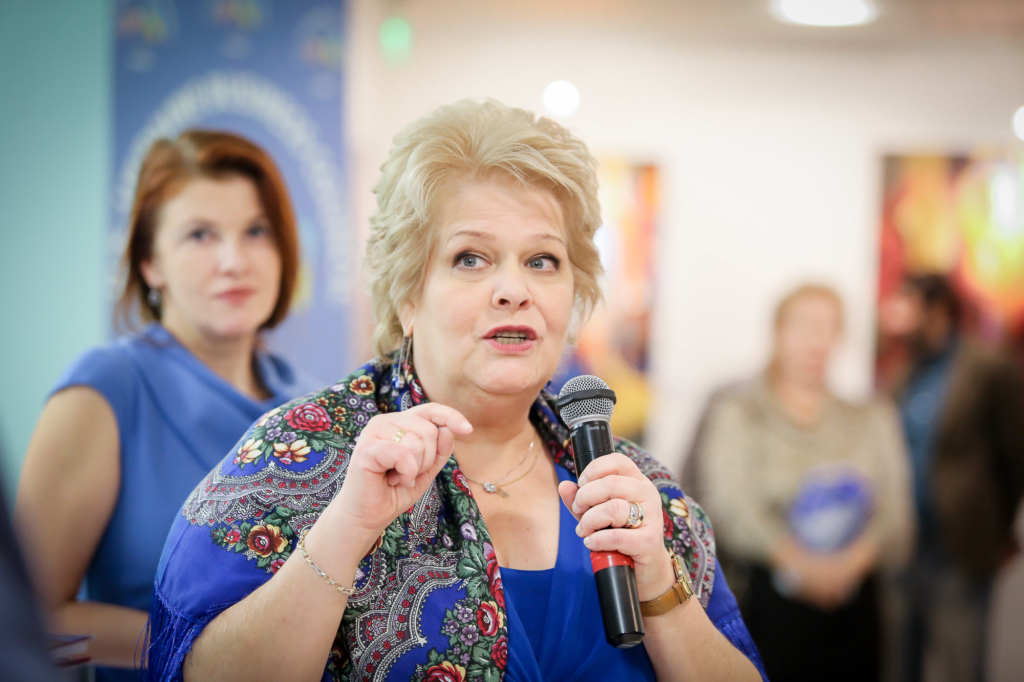Ukrainian Americans in my home state of Minnesota told me about Marta Kolomayets even before I visited Ukraine for the first time, 24 years ago this month.
While doing research for my first trip in the summer of 1996, local community leader Walter Anastas told me to get a subscription to the Ukrainian Weekly, a New Jersey-based English-language newspaper started in 1933. Kolomayets was the bureau chief in Kyiv and I quickly immersed myself in her work.
Then, when I arrived on a journalism exchange program at the invitation of the U.S. Embassy in Ukraine, I got introduced to Kolomayets personally by my University of Minnesota friend and former colleague, Victoria Sloan, who was stationed at the embassy.
Kolomayets helpfully found me an apartment to rent in the Podil building where she and her husband, TV journalist Danylo Yanevsky, lived. She invited me to dinner and we’d see each other from time to time in the building.
News of her death on Aug. 16, 2020, was delivered to me in an email marked “urgent” by the Kyiv Post’s former Washington, D.C., correspondent Askold Krushelnycky. Her departure from this life is a big shock to the Ukrainian expatriate community and to those who knew her personally, which seemed to be everybody.
Marta and I were not best friends or confidants. We had a mutually supportive, respectful, and friendly professional relationship. We had a lot of shared interests. We were contemporaries, born in 1959, became journalists, often agreed on politics, and always wanted what was best for Ukraine. Every interaction I had with her revealed a lot about the wonderful soul that the world lost too soon. I went over our correspondence over the years and was reminded that we teamed up on a lot more things than I initially recalled.
I interviewed her for the Kyiv Post in 2013 and learned so much about her from that conversation. That year, she also got the Kyiv Post started as a media partner for the Ukrainian Catholic University’s big annual fundraiser. She was on the board of directors. We’ve been media partners ever since.
As Ukraine Fulbright Program director, she invited me in 2014 to be on the panel that selected Ukrainian participants for the U.S. exchange program, and again in 2016, which I couldn’t make for some reason.
It was an enriching experience, interviewing bright young aspirants vying for a very competitive honor. Part of the enrichment was in watching Kolomayets interview the candidates, with a mixture of diplomacy and directness designed to ensure that only the best of the best got chosen. Her journalism experience paid off — her BS detector was quite strong.
She also periodically put Fulbright scholars or promising journalism candidates in touch with me. She passed on story tips and helped fill in my (many) gaps in knowledge about Ukraine.

Marta Kolomayets, daughter of late artist Anatole Kolomayets, speaks at the opening ceremony of his exhibition in Kyiv on Nov. 16, 2017. (Oleg Petrasiuk)
We invited each other to each other’s events, from the Fulbright’s 25th-anniversary celebration to the annual Kyiv Post Tiger Conference and the Kyiv Post’s 20th birthday party in 2015. In 2016, she showed up to the Kyiv Post-sponsored debate of the presidential election, featuring local American expatriates representing candidates Hillary Clinton and Donald J. Trump.
The Kyiv Post asked her to nominate candidates for the newspaper’s annual Top 30 Under 30 Awards – and many of her choices won. She knew so many talented young Ukrainians that she could have picked the entire field.
In 2018, we teamed up and split the costs with the Canadian Embassy in Ukraine and Ukrainian Jewish Encounter to rent a movie theater for screening “Hunger for Truth: The Rhea Clyman Story” about the brave Canadian journalist (1904-1981) who helped expose the 1932-1933 Holodomor, the Kremlin-ordered genocide that killed four million Ukrainians. She organized the visit of film director Andrew Tkach for the showing and a reception afterward.
In the summer of 2019, when I visited Chicago’s Ukrainian Village neighborhood for the first time, she and her husband were there when I spoke to a group of Ukrainian Americans in the Ukrainian Institute of Modern Art at the invitation of the Chicago Business and Professional Group.
There’d be the occasional touch-base lunches and dinners over the 24-year association, but not nearly enough, considering that we worked only a few blocks from each other.
The one big invitation I regret to this day not attending was to a 2017 exhibition of the artworks of her late father, Anatole Kolomayets, called “Return to the Homeland.” He was born in Ternopil, Ukraine, in 1927, and died in Chicago in 2014. As far as I know, Marta’s mother, Lybomyra, and brother, Andrij, are still in Chicago.
She was last quoted in the Kyiv Post for a July 31, 2020, story by Ukrainian American intern Maya Sobchuk on COVID-19’s effect on the Fulbright exchange program. The last two messages I sent her this summer went unanswered, which was quite unusual for her. But Krushelnycky tipped me off that she had been very ill for the last two years, and in and out of hospitals.
There are people you will never forget for the rest of your life and people whose deaths you never quite fully recover from. This often applies to grandparents, parents, relatives, close friends or cherished teachers, colleagues, and mentors.
For me, Marta Anna Kolomayets Yanevska is one of these people and her death is not only a loss for those who knew her personally but for Ukraine. She accomplished so much in her lifetime, more than most people. Yet one cannot help but wonder how much more she could have accomplished if she had been blessed with more time.
